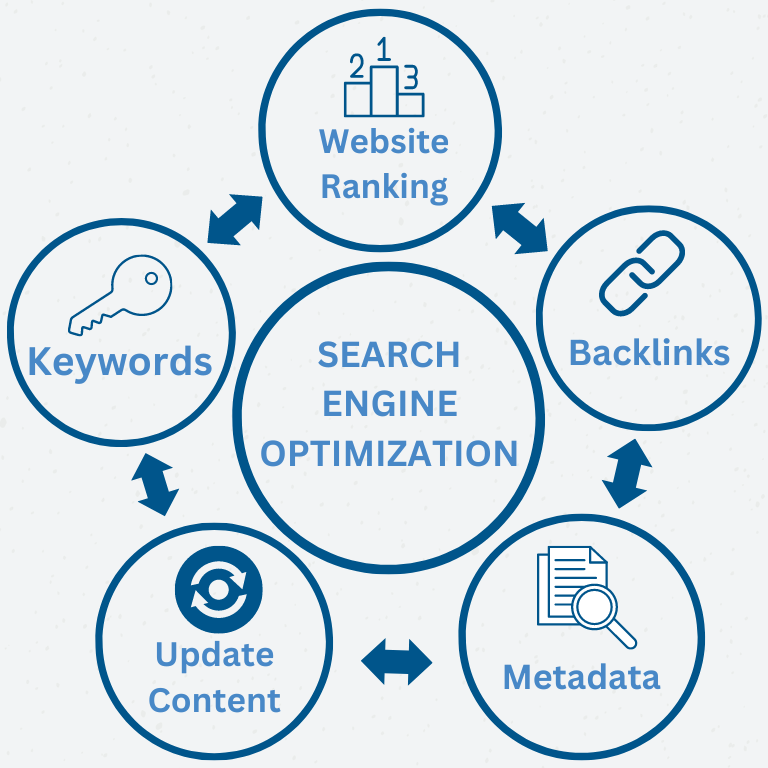» IMPROVING A WEBSITE’S RANKING IN SEARCH ENGINE RESULTS
SEO
Search engine optimisation (SEO) is the practice of formatting a website and its contents so that the site appears in more search results and higher up on those search results. Improving visibility in this way brings more visitors to a website, improving brand awareness, user engagement, and revenue generated by the site.
SEO is not just a way to improve visibility; because search engines prioritise sites that perform well and have meaningful content. It also helps create an all-round better experience for visitors.
Netgen develops websites using WordPress, which is a platform that allows us to structure, manage and publish content in an SEO-friendly way. There are also plugins, themes and reports available that have been made specifically for SEO.

How to improve SEO ranking
How do search engines find and organise information?
Contact Netgen for your SEO and web development needs
Improve visibility, brand awareness, and more traffic to your website!

